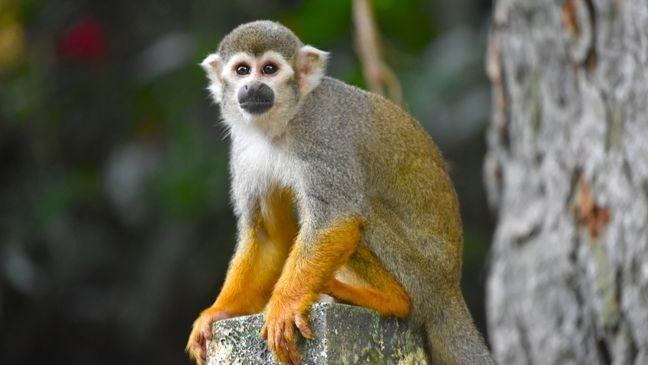San Antonio Woman Faces Federal Charges for Illegally Importing Protected Spider Monkeys
A woman from San Antonio has been federally indicted for allegedly trafficking spider monkeys into the United States without the necessary permits, spotlighting the persistent issue of illegal wildlife trade. Authorities report that the suspect attempted to smuggle these endangered primates across state lines, violating multiple federal statutes aimed at safeguarding vulnerable species. This case underscores the ongoing battle against illicit animal trafficking networks and the critical need for stringent enforcement of wildlife protection laws.
Investigators uncovered several tactics employed by the accused to evade detection, including:
- Fabrication of documents to falsely classify the monkeys as common domestic pets.
- Coordinated distribution efforts spanning multiple states to conceal the animals’ movement.
- Attempts to market the spider monkeys within niche exotic pet communities.
Below is a summary of the federal charges and their associated maximum penalties:
| Charge | Description | Maximum Penalty |
|---|---|---|
| Illegal Wildlife Trafficking | Transporting protected species without authorization | Up to 5 years imprisonment; fines up to $250,000 |
| Smuggling | Concealing animals to bypass customs inspections | Up to 10 years imprisonment |
| Violation of Endangered Species Act | Exploitation or harm of federally listed wildlife | Fines and potential incarceration |
Legal Risks and Public Health Implications of Unauthorized Wildlife Importation
Federal agencies have emphasized the grave dangers and legal consequences tied to the unlawful import of wildlife, as illustrated by the recent spider monkey smuggling case in San Antonio. Beyond threatening endangered species, such illicit activities pose significant public health risks by facilitating the spread of zoonotic diseases. Smuggled animals often endure unsanitary and stressful conditions, increasing the likelihood of disease outbreaks that can affect both humans and native wildlife populations.
Key repercussions include:
- Criminal prosecution with potential imprisonment and substantial fines
- Confiscation and humane euthanasia of illegally imported animals
- Negative impacts on conservation initiatives for native species
- Enhanced cross-border collaboration to thwart future smuggling attempts
| Offense | Potential Penalty | Illustrative Case |
|---|---|---|
| Wildlife Smuggling | Up to 5 years imprisonment | San Antonio spider monkey case |
| Health Code Violations | Fines up to $50,000 | Illegal primate importation |
| Animal Cruelty | Varies by jurisdiction | Poor transport conditions |
Ecological Consequences of Wildlife Trafficking on Endangered Primates and Ecosystem Health
The illegal trade of wildlife, exemplified by the recent smuggling of spider monkeys, poses a severe threat to the survival of endangered species. These primates, forcibly removed from their native environments, often suffer from extreme stress, injury, and mortality during transit. Beyond individual animal welfare, trafficking disrupts population structures, undermining global conservation efforts. Spider monkeys, in particular, are vital seed dispersers, playing an essential role in sustaining forest regeneration and biodiversity.
The broader ecological ramifications include:
- Compromised forest regeneration: Reduced seed dispersal alters plant diversity and forest composition.
- Disrupted food chains: Loss of key species affects predator-prey dynamics.
- Heightened susceptibility to invasive species: Weakened ecosystems become vulnerable to non-native species encroachment.
Tackling wildlife trafficking demands a unified approach combining law enforcement, conservation efforts, and public education to safeguard these species and maintain ecosystem balance.
| Ecological Factor | Effect | Environmental Impact |
|---|---|---|
| Species Decline | Population reduction | Loss of genetic diversity |
| Habitat Alteration | Disruption of species roles | Changed ecosystem processes |
| Illegal Trade | Weakens conservation efforts | Elevated extinction risk |
Strategies for Preventing and Reporting Illegal Wildlife Smuggling
Combating the illicit trafficking of animals requires enhanced cooperation between law enforcement and the public. Establishing accessible and anonymous reporting mechanisms—such as dedicated hotlines, mobile applications, and online platforms—can empower citizens to report suspicious activities promptly. Additionally, border security personnel should receive specialized training in identifying protected species and recognizing smuggling methods tailored to exotic animals like spider monkeys. Public awareness campaigns are crucial to educate communities about the signs of illegal wildlife trade in markets, airports, and digital marketplaces.
- Conduct regular patrols at critical transit hubs to deter trafficking.
- Foster international partnerships for intelligence sharing and coordinated enforcement.
- Implement stricter legal penalties to discourage potential offenders.
- Encourage sustainable wildlife tourism and ethical trade alternatives that protect animal populations.
| Recommendation | Implementation | Expected Outcome |
|---|---|---|
| Public Reporting Systems | 24/7 hotlines and mobile apps | Quicker and more reliable tip submissions |
| Border Security Training | Workshops on species identification | Higher detection rates of illegal imports |
| Global Cooperation | Shared databases and communication channels | Improved interception of trafficking networks |
| Legal Enforcement | Harsher sentencing guidelines | Reduced incidence of smuggling attempts |
Conclusion
The investigation into the San Antonio woman’s alleged spider monkey smuggling operation remains active as authorities continue to scrutinize potential related offenses. Federal officials stress the importance of compliance with wildlife protection laws to preserve endangered species and uphold border security. The forthcoming legal proceedings will determine the final outcomes and serve as a precedent in the fight against illegal wildlife trafficking in the United States.




